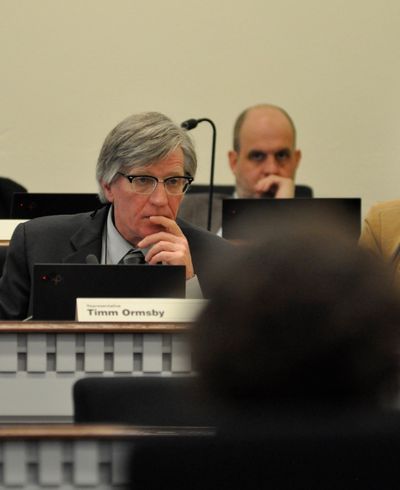Budget committee weighs Inslee’s plan to stockpile abortion medicine

OLYMPIA – A plan for Washington to stockpile three years’ worth of an abortion pill at the center of conflicting court rulings was praised Tuesday as supporting women’s health and criticized as endangering it.
It was denounced as a political act that could leave the state liable for any problems, and lauded as a wise hedge against court rulings that seem to change daily.
But while Gov. Jay Inslee’s plan to purchase 30,000 doses of mifepristone generated many familiar comments by those who support the right to abortion and those who oppose it, a House Appropriations Committee hearing was focused on the bottom line.
The Legislature, which is putting the final touches on the 2023-25 operating budget, is being asked to set aside $950,000 for the next two years in the Department of Corrections budget.
Theresa Schrempp, a Seattle retiree, said she doubted the situation constitutes an emergency at this point, because the pill remains available and court cases are ongoing. Even if a final court ruling bans the drug, surgical abortions would still be available, she said.
Sharon Danoff suggested that the fact the Department of Corrections would be in charge of the drugs “let’s you know there’s something shady.”
The department would stockpile and distribute the medicine because it operates the largest state-run pharmacy and has the most flexible license, said Sean Murphy, the department’s deputy director. It would provide it at cost, plus a $5 fee to clinics and health care facilities.
The department would not, however, be dispensing it to inmates seeking an abortion, said Molly Voris, Inslee’s adviser for public health and health care. They would continue to go through private health care providers, not at state expense.
Julie Barrett, of the Conservative Ladies of Washington, said the plan by Inslee and the Legislature to get around a possible court ruling “disregards the separation of powers.”
Jody Disney of the League of Women Voters said it would preserve the life, health and decision-making ability of half the people in Washington.
Mercedes Sanchez said the U.S. Supreme Court’s Dobbs decision, which overturned a national right to abortion and left abortion laws up to the states, has created a “national health care crisis,” which could get worse if the ban of mifepristone is upheld.
But Beth Diaranciang questioned the safety of the drug for adolescent girls, and argued the state could be liable for any adverse consequences suffered by those who receive the drug from the plan.
The proposal has already passed the Senate. Appropriations Committee Chairman Timm Ormsby, D-Spokane, scheduled a committee vote on the bill for Wednesday afternoon.